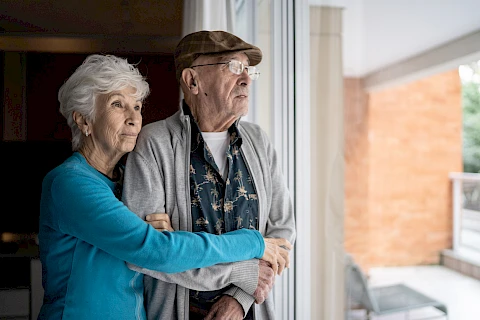
As we age, staying vigilant about our health and that of our loved ones is crucial, especially in recognizing Parkinson's in your spouse. This degenerative disorder primarily affects seniors and impacts the nervous system. It’s a progressive condition that can significantly impact a loved one’s quality of life. Early detection can significantly enhance the management of Parkinson's journey, enabling timely intervention for more effective outcomes.
The Basics of Parkinson's Disease
Parkinson's disease is a chronic neurological disorder mainly affecting movement and muscle control. People with Parkinson's experience a decline in dopamine, a neurotransmitter in the brain. Dopamine plays a vital role in regulating movements, emotions, and feelings of pleasure. Despite being more common in individuals over 60, Parkinson's can occur in younger people as well. An early diagnosis can help manage the symptoms. Early intervention and tailored treatment plans can help maintain a higher quality of life.
Early Signs and Symptoms of Parkinson's
Identifying Parkinson's can be challenging as symptoms vary from person to person and can often be subtle in the early stages. Physical signs like tremors, usually starting in one hand, stiffness, or slow movement are common.
There can be non-physical signs as well. These may include mood changes, anxiety, depression, or cognitive changes. You may also notice changes in your spouse's sleep patterns, like insomnia or excessive daytime sleepiness. While these symptoms alone do not confirm Parkinson's disease, they do provide good reasons to consult with a healthcare professional.
Steps to Take If You Suspect Your Spouse Has Parkinson's
If you're concerned that your spouse may have Parkinson's, encourage them to see a healthcare professional. Diagnosing Parkinson's entails a comprehensive process and should not rely on self-assessment alone. This includes a detailed medical history review, a thorough examination of signs and symptoms, and a neurological assessment. Specific Parkinson's disease tests may also be conducted to confirm the diagnosis.
At this stage, maintaining open communication with your spouse is paramount. Approach discussions with honesty and sensitivity. Express your concerns while reassuring them of your unwavering support throughout the diagnostic journey.
Role of Senior Helpers in Parkinson's Care
Caregivers are pivotal in Parkinson's care, providing invaluable support in managing the condition and enhancing quality of life. Senior Helpers North Side Chicago offers comprehensive Parkinson's Care services. Our specially trained team understands the complexity of Parkinson's disease, providing personalized and professional care according to the stage and symptoms of the disease. From assisting with daily tasks, medication reminders, companionship, and even specialized nursing care, we ensure the comfort and well-being of our clients in their homes.
Contact Senior Helpers for Personalized Care and Support
Parkinson's disease may be a daunting diagnosis, but early detection and professional care can manage its progression effectively. By staying informed, fostering open communication, and accessing support networks, you can navigate the challenges of Parkinson's with greater confidence and resilience.
If you live in Chicago and you're seeking support for a spouse with Parkinson's, connect with Senior Helpers North Side Chicago. Our Parkinson's Care services can provide you with the help you need while ensuring your loved one's dignity and comfort. Contact us to learn more about how we can help!